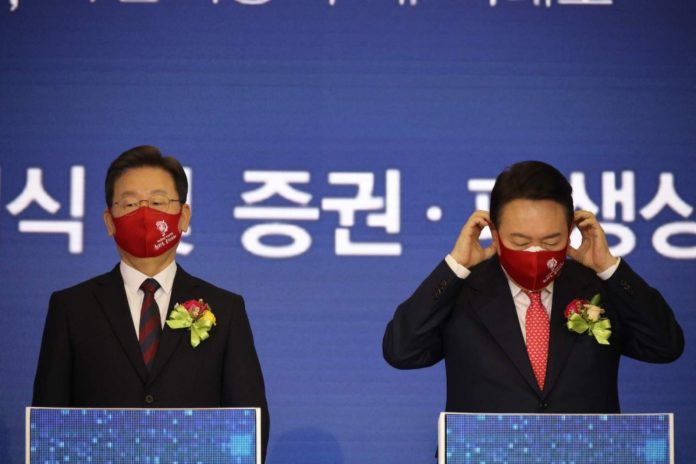This article was originally published by Foreign Policy.
It’s the first in recent memory to feature substantive foreign-policy differences between the ruling and opposition camps.
Americans should pay close attention to South Korea’s upcoming presidential election on March 9, as it will have real ramifications for U.S. policy.
It will be the first South Korean election in recent memory where there are substantive foreign-policy differences between the ruling and opposition camps beyond their standard divergent views of North Korea. This time, the two sides also disagree on important alliance issues; energy and climate change issues; dealings with China; and whether South Korea should pursue a seat at the Quadrilateral Security Dialogue (known as the Quad), composed of the United States, Japan, India, and Australia.
Which means whether Yoon Seok-youl, a former prosecutor general and lawyer representing the opposition conservative People Power Party, or Lee Jae-myung, a former governor of one of Korea’s provinces and candidate from the ruling progressive Democratic Party, wins in March will make a difference across the Indo-Pacific region.
In South Korea, the terms progressive and conservative are largely defined by attitudes toward North Korea, and approaches to North Korea are likely to mimic previous progressive and conservative administrations in Seoul. Progressives like current South Korean President Moon Jae-in favor engagement with the North, seeing Pyongyang’s nuclear weapons program as the manifestation of the North Korean regime’s insecurity and political isolation. They are likely to support the advancement of a peace declaration and inter-Korean economic and humanitarian projects. Conservatives, meanwhile, hold a more skeptical view of North Korean intentions and take a tougher line.
Where the parties are paving new ground is in other foreign-policy and alliance matters, such as the question of whether to resume joint military exercises with the United States. Then-U.S. President Donald Trump unilaterally canceled these exercises after his 2018 Singapore summit with North Korean leader Kim Jong Un. The progressive ruling party candidate hasn’t committed clearly to a resumption of such exercises, which might be a bid to avert triggering North Korean belligerence. The conservative party candidate has been more willing to entertain the prospect. This matters for the United States because the indefinite cessation of exercises reduces the readiness of U.S. and South Korean forces, which could undermine the credibility of deterrence on the peninsula and invite North Korean miscalculation.
Another issue is the transfer of wartime operational command authority to South Korea. Known as “OPCON transfer,” this would see South Korea exercise control over a war against North Korea rather than the United States, which speaks to South Korea’s growth and maturation into having one of the top militaries in the world today. The United States, while agreeing in principle to completing the OPCON transfer in a timely manner, wants to confirm that its ally meets the necessary operational requirements and conditions to effect the transfer. The ruling progressive party advocates an early handover, but doing so without adequate preparation could put the alliance in danger.
To read more, click here.
Victor Cha is a senior fellow in the Human Freedom Initiative at the George W. Bush Institute, a professor at Georgetown University, and the former National Security Council director for Asian affairs.


